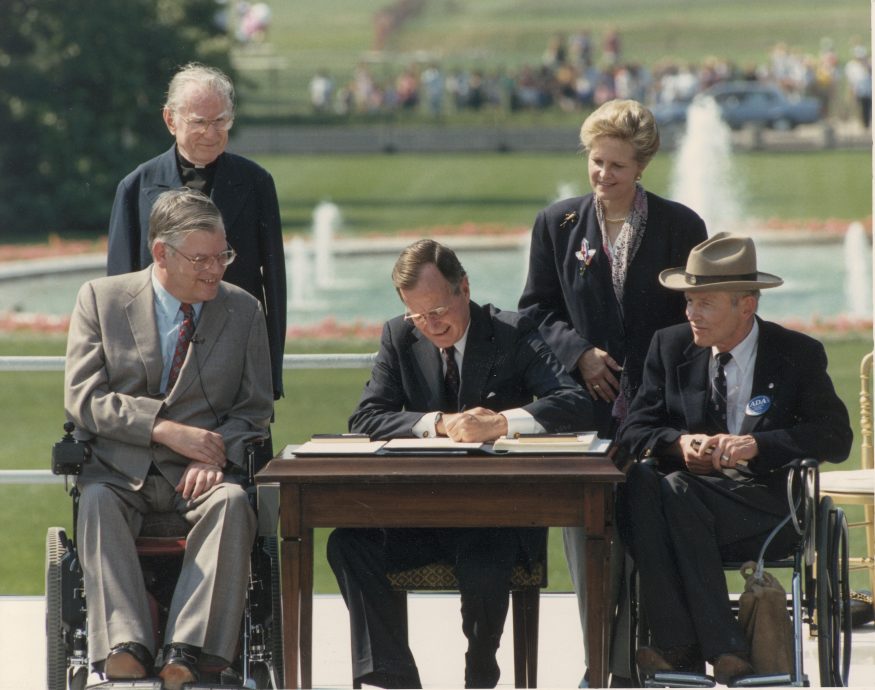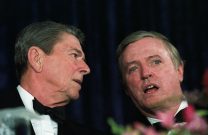America needs religious traditionalists, and they need their classically liberal allies.
A Reagan Holdover's Belated Appreciation for George H.W. Bush
As a holdover from the Reagan administration, I confess to having found working for George H.W. Bush frustrating. With Reagan, there was a clear and simple direction to the bureaucracy—smaller government and deregulation. Fighting the Evil Empire was the watchword of foreign policy. In contrast, and particularly in domestic policy, President Bush sounded an uncertain trumpet, and some of the notes seemed to call for reversing direction. A “kinder and gentler America” suggested that the America Reagan was creating was unkind and maybe a little cruel, when in reality his focus on restoring economic growth and civic confidence was a tonic that should never be left to run dry.
And even the spirit of my office changed—not, I thought, for the better. In the Reagan Justice Department, the Office of Legal Counsel had been driven by jurisprudential principles like originalism and federalism. These principles were in a sense our clients. But under Bush, we focused on advancing messy policy interests and the jurisprudence became secondary. And in the department as whole, there was confusion on fundamental issues like civil rights, with people in favor of color-blindness battling with those who wanted race-conscious policies without direction from the top. To my mind, President Reagan had been a bold leader steering a steady course ahead toward classical liberal destinations. On domestic policy, George H.W. Bush seemed more like a senior bureaucrat, just trying to move an issue from his inbox to his outbox with the minimum of controversy and little concern for coherence. In part for these reasons, I resigned before the end of the term and headed to academia.
I have a much more favorable view of his presidency three decades later. That is the result, partly, of grading on a curve. He was a better President than anyone who came after. Unlike his son, he did not lead the nation into a disastrous war and grow the federal deficit. He did not aggrandize the state like Barack Obama. He not bring shame to the office like Bill Clinton or divide the nation with unpresidential conduct like President Trump. He was no Reagan, but at that time I did not realize that I can probably expect over my lifetime only one great President.
Second, I have better appreciation for the constraints of politics. Reagan could pursue a relatively radical program of liberty, because he was elected against the background of extreme government failure—particularly in the form of the Carter administration. But Reagan’s very success made further reforms seem less necessary and the barnacles of interest groups naturally reattached to government. Moreover, Bush faced a Democratic House and Senate that had been emboldened by gaining seats in the 1988 election.
Third, he did some things, particularly in foreign policy, affirmatively well—handling the end of the Cold War and removing Saddam Hussein from Kuwait. That does not mean I approve of all his actions. The budget deal was the single largest error, one that probably doomed his presidency, creating a fiscal contraction that led to a recession.
But I was a very young man in the Reagan administration, far more confident in the permeability of the world to the right ideas. As a much older man, I recognize that the substantial limits on political improvement. I am therefore far more grateful to George H.W. Bush, who did not inflict much harm and did some occasional good. That may not seem like much of an epitaph, but it is better than how honest epitaphs for most of our Presidents would read, let alone how most politicians in the world’s history will be remembered.


